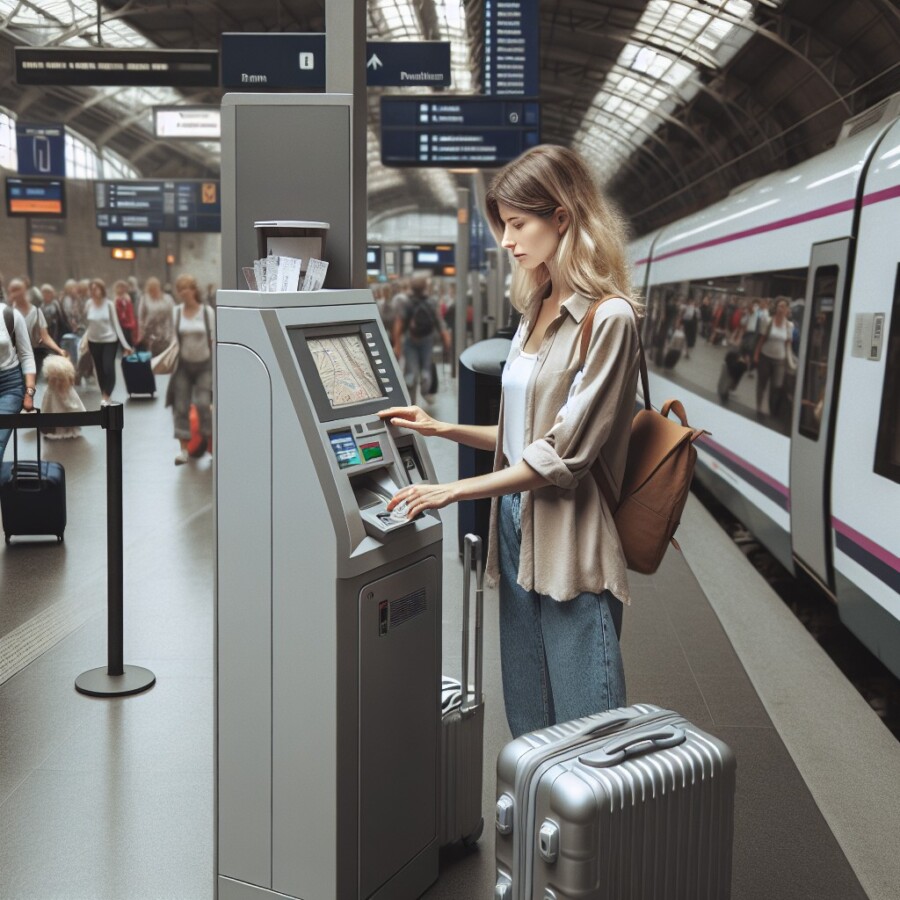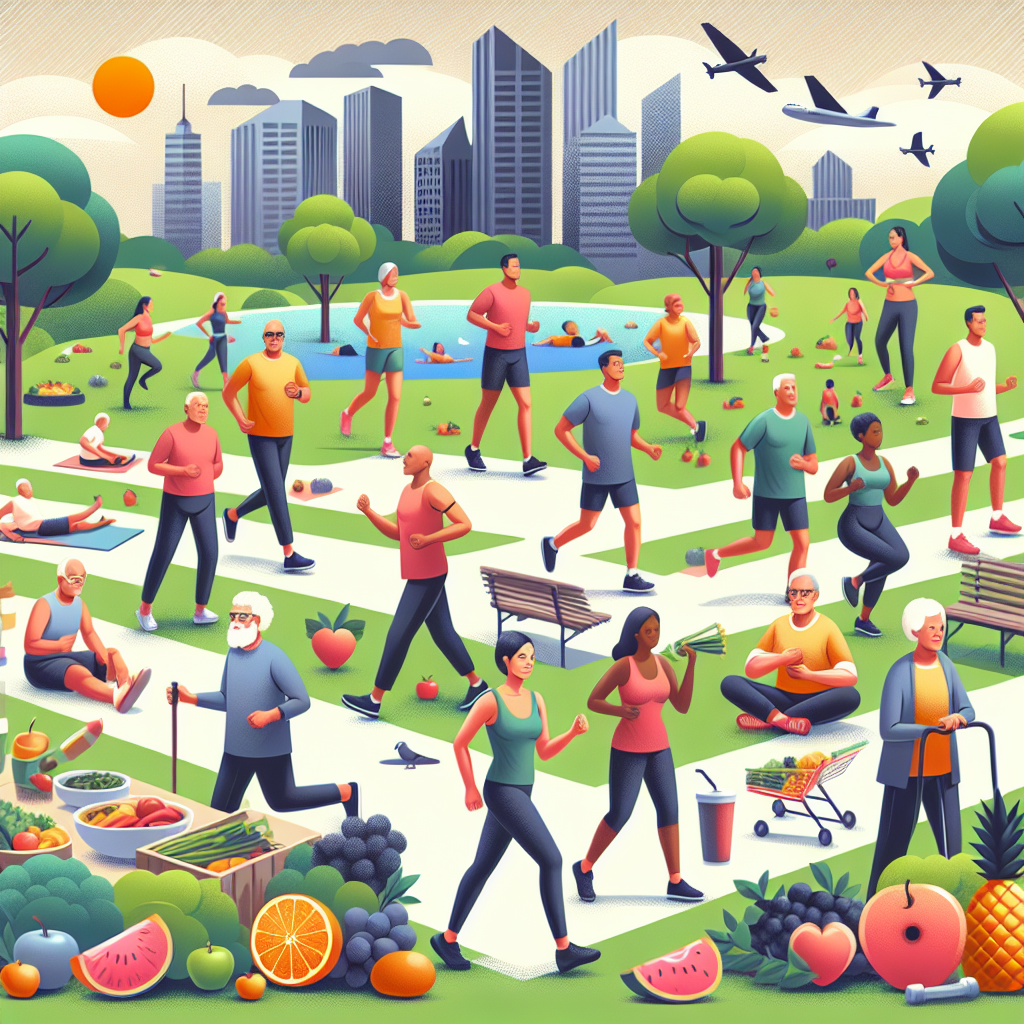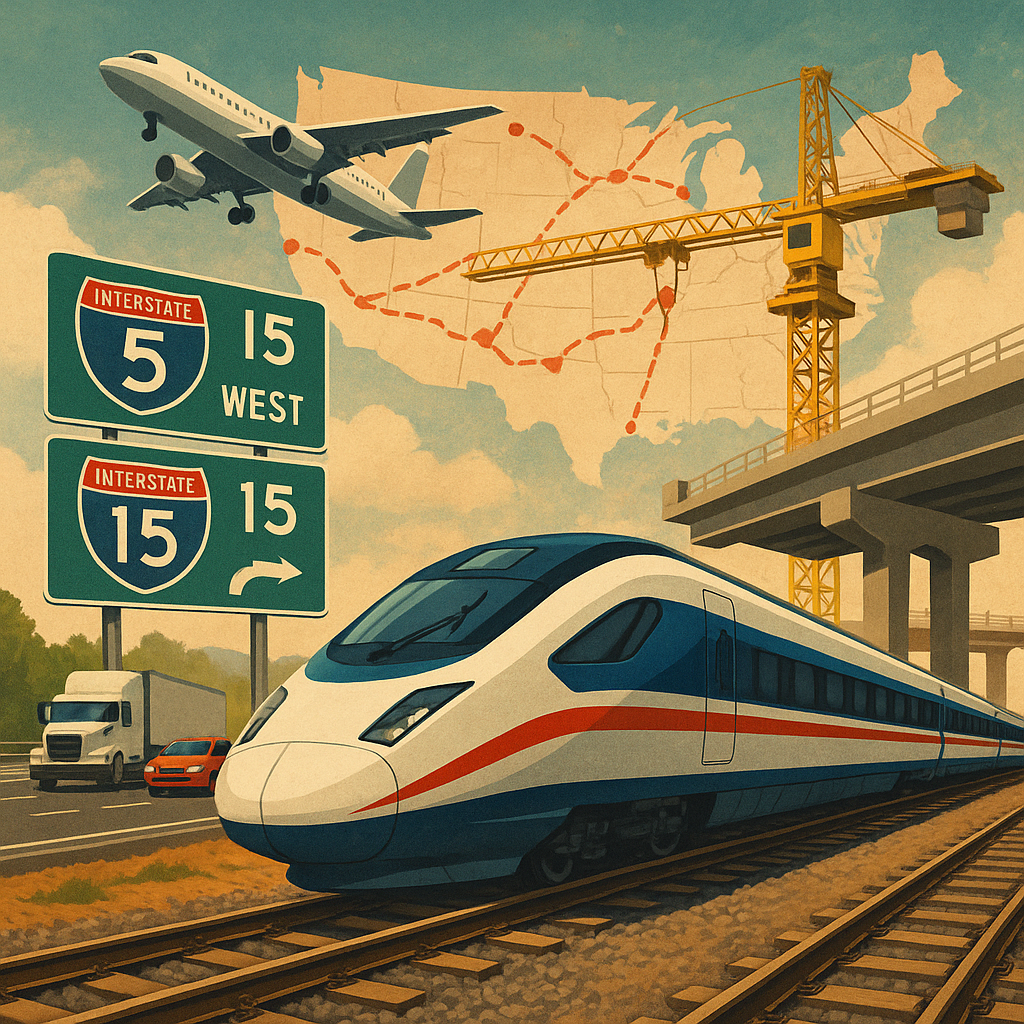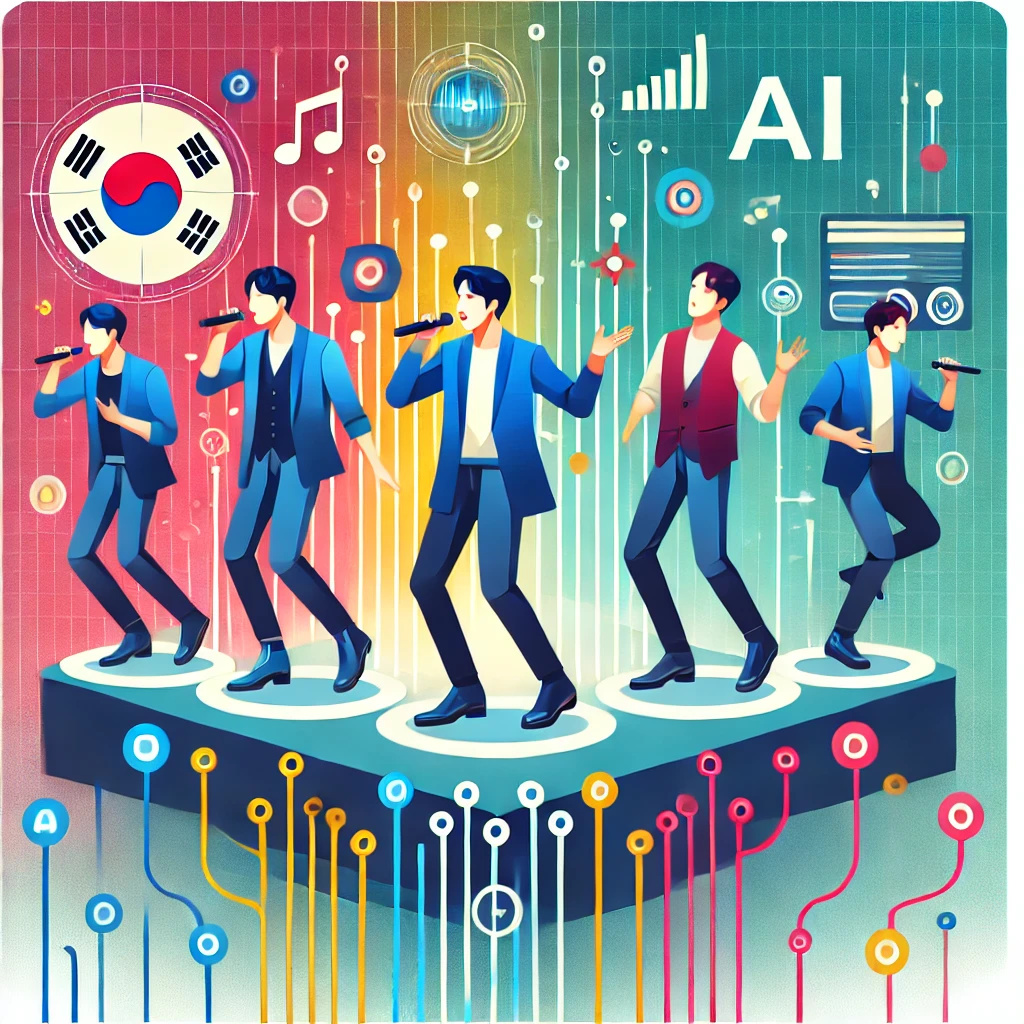Ticket machines at train stations are charging passengers more than double the price they would pay online for certain journeys, according to a study by consumer group Which?. The research found that same-day rail tickets were on average 50% more expensive at stations compared to online prices. The study also found that the best value fares were hard to find on many machines. Plans to close many ticket offices at train stations were cancelled after people complained. Currently, only one in six train stations has a full-time ticket office.
Which? sent people to 15 train stations to compare the prices of tickets from machines with those from online retailer Trainline. They found that there were big differences in prices. For example, a journey from Holmes Chapel to London cost £66 at a machine, but only £26 online. The price difference was even bigger for a journey from Northampton to Cardiff, which cost £107 at a machine but only £43 online. The higher prices at machines are because they don’t offer cheaper advance fares or off-peak fares.
Rory Boland, editor of Which? Travel, said that the price differences were “amazing”. He pointed out that many people, especially older people who don’t have the internet, are paying more than they need to when they travel. Two in five train stations don’t have a ticket office at all, so people have no choice but to use the machines. The many different types of train fares also make it hard for people to know which one is best for them.
Train company LNER is trying to make fares simpler by getting rid of return tickets and reducing the number of standard class fares. The Rail Delivery Group, which represents train companies, agrees that more needs to be done to make fares easier for customers. They say that introducing single leg pricing and expanding contactless fares are important changes. In December, the Department for Transport announced that train fares in England would go up by up to 4.9% from March, which is less than the usual increase in January.
Original news source: Train ticket machines charging double online price (BBC)
🎧 Listen:
Slow
Normal
Fast
📖 Vocabulary:
| 1 | charging | Asking for payment or money in exchange for goods or services |
| 2 | journeys | Trips from one place to another |
| 3 | consumer | A person who buys goods or services for their own use |
| 4 | average | The typical or normal amount, level, standard, etc. |
| 5 | cancelled | Stopped from happening or called off |
| 6 | retailer | A business that sells goods directly to the people who use them |
| 7 | advance | Before the actual time or event |
| 8 | peak | The busiest or most crowded times |
| 9 | amazing | So surprising that it’s hard to believe |
| 10 | fares | The money you pay to travel by bus, train, taxi, etc. |
| 11 | simpler | Easier to understand or deal with |
| 12 | represents | Acts on behalf of another person or group |
| 13 | introducing | Bringing something into use or practice for the first time |
| 14 | contactless | Able to be used without needing to touch or insert a card |
| 15 | announced | Made a public and official statement about something |
Group or Classroom Activities
Warm-up Activities:
– News Summary
Instructions: Have students read the article individually or in pairs. Then, ask them to write a brief news summary of the article, highlighting the main points and key details. They can share their summaries with the class and discuss any differences or similarities.
– Opinion Poll
Instructions: Divide the class into small groups. Each group should discuss and debate the issue presented in the article: ticket machines charging more than online prices. After the discussion, have each group conduct an opinion poll within the class, asking students whether they think ticket machines should charge the same as online prices or if the current system is acceptable. Finally, have each group present their findings and share their own opinions.
– Vocabulary Pictionary
Instructions: Write down key vocabulary words from the article on separate slips of paper and put them in a bowl or hat. Divide the class into small teams. One student from each team will come up and choose a slip of paper. They must then draw a visual representation of the word without using any letters or numbers. The other team members must guess what word is being drawn. The team with the most correct guesses wins.
– Pros and Cons
Instructions: Divide the class into pairs. Each pair should discuss the pros and cons of ticket machines charging more than online prices. They should consider the impact on different groups of people, such as older people without internet access or frequent train travelers. After the discussion, each pair should present their findings to the class and engage in a class-wide debate.
– Future Predictions
Instructions: Have students work individually or in pairs to make predictions about the future of ticket machines and train fares. They should consider potential solutions to the problem presented in the article, such as implementing consistent pricing or improving accessibility for older people. Students can present their predictions to the class and discuss the feasibility and potential impact of their ideas.
🤔 Comprehension Questions:
1. According to the study by Which?, how much more expensive are same-day rail tickets at train stations compared to online prices on average?
2. Why were plans to close many ticket offices at train stations cancelled?
3. How many train stations have a full-time ticket office currently?
4. What did Which? do to compare the prices of tickets from machines with those from Trainline?
5. Can you give an example of a journey that was significantly more expensive at a machine compared to online?
6. Why are the prices higher at ticket machines?
7. Who is paying more than they need to when they travel, according to Rory Boland?
8. What changes are train companies and the Rail Delivery Group suggesting to make fares easier for customers?
Go to answers ⇩
🎧✍️ Listen and Fill in the Gaps:
Ticket machines at train stations are charging passengers more than double the (1)______ they would pay online for certain journeys, according to a (2)______ by consumer group Which?. The research found that same-day rail tickets were on average 50% more expensive at stations compared to online (3)______. The study also found that the best value (4)______ were hard to find on many machines. Plans to close many ticket offices at train stations were cancelled after people complained. Currently, only one in six train stations has a full-time ticket office.
Which? sent people to 15 train stations to compare the prices of tickets from machines with those from (5)______ retailer Trainline. They found that there were big differences in prices. For example, a (6)______ from Holmes Chapel to London cost £66 at a machine, but only £26 online. The price difference was even bigger for a journey from (7)______ to Cardiff, which cost £107 at a machine but only £43 online. The (8)______ prices at machines are because they don’t offer cheaper advance fares or off-peak fares.
Rory Boland, (9)______ of Which? Travel, said that the price differences were “amazing”. He pointed out that many people, especially older people who don’t have the internet, are (10)______ more than they need to when they travel. Two in five (11)______ stations don’t have a ticket office at all, so people have no choice but to use the machines. The many different types of train fares also make it hard for people to know which one is best for them.
(12)______ company LNER is trying to make fares simpler by getting rid of return tickets and reducing the number of standard (13)______ fares. The Rail Delivery Group, which represents train companies, agrees that more needs to be done to make fares easier for customers. They say that (14)______ single leg pricing and expanding contactless fares are important changes. In December, the Department for Transport announced that train fares in (15)______ would go up by up to 4.9% from (16)______, which is less than the usual increase in January.
Go to answers ⇩
💬 Discussion Questions:
Students can ask a partner these questions, or discuss them as a group.
1. Have you ever bought a train ticket from a ticket machine? How did you feel about the experience?
2. What do you think about the prices of train tickets being more expensive at ticket machines compared to online prices?
3. How would you feel if you found out you paid more for a train ticket from a machine than you would have online?
4. Do you think it’s fair that ticket machines don’t offer cheaper advance fares or off-peak fares? Why or why not?
5. Have you ever had difficulty finding the best value fares on a ticket machine? How did you handle it?
6. Do you think it’s a good idea to close ticket offices at train stations? Why or why not?
7. What do you think about the fact that only one in six train stations has a full-time ticket office?
8. How do you think older people who don’t have the internet feel about having to use ticket machines and potentially paying more for their tickets?
9. Do you agree with Rory Boland that the price differences between ticket machines and online prices are “amazing”? Why or why not?
10. How do you think the different types of train fares make it difficult for people to know which one is best for them?
11. What do you think about LNER’s plan to get rid of return tickets and reduce the number of standard class fares? Do you think it will make fares simpler?
12. Do you think it’s a good idea to introduce single leg pricing and expand contactless fares? Why or why not?
13. What do you think about the announcement that train fares in England will go up by up to 4.9% from March? Do you think it’s fair?
14. Have you ever used contactless payment for a train fare? How was your experience?
15. What changes would you suggest to make train fares easier for customers?
Individual Activities
📖💭 Vocabulary Meanings:
Match each word to its meaning.
Words:
1. charging
2. journeys
3. consumer
4. average
5. cancelled
6. retailer
7. advance
8. peak
9. amazing
10. fares
11. simpler
12. represents
13. introducing
14. contactless
15. announced
Meanings:
(A) Before the actual time or event
(B) A person who buys goods or services for their own use
(C) The typical or normal amount, level, standard, etc.
(D) Bringing something into use or practice for the first time
(E) Trips from one place to another
(F) So surprising that it’s hard to believe
(G) Acts on behalf of another person or group
(H) Asking for payment or money in exchange for goods or services
(I) Easier to understand or deal with
(J) A business that sells goods directly to the people who use them
(K) The busiest or most crowded times
(L) Able to be used without needing to touch or insert a card
(M) Stopped from happening or called off
(N) The money you pay to travel by bus, train, taxi, etc.
(O) Made a public and official statement about something
Go to answers ⇩
🔡 Multiple Choice Questions:
1. According to the study by Which?, train tickets bought at ticket machines are on average ________ more expensive than online prices.
(a) 25%
(b) 75%
(c) 100%
(d) 50%
2. Why were plans to close ticket offices at train stations cancelled?
(a) The machines were too expensive
(b) People complained
(c) Train companies didn’t want to close them
(d) The government intervened
3. How many train stations currently have a full-time ticket office?
(a) One in four
(b) Half of them
(c) None of them
(d) One in six
4. How many train stations did Which? visit to compare ticket prices?
(a) 10
(b) 20
(c) 15
(d) 5
5. How much did a journey from Holmes Chapel to London cost at a ticket machine?
(a) £66
(b) £26
(c) £107
(d) £43
6. Why are ticket machines more expensive than online prices?
(a) They have higher operating costs
(b) They have better customer service
(c) They don’t offer cheaper advance fares or off-peak fares
(d) They have faster transaction times
7. Who is paying more than they need to when they travel?
(a) Older people who don’t have the internet
(b) Young people who use ticket machines
(c) People who buy tickets online
(d) People who complain about ticket prices
8. What changes are train companies and the Rail Delivery Group proposing to make fares easier for customers?
(a) Closing ticket offices and using only ticket machines
(b) Introducing single leg pricing and expanding contactless fares
(c) Increasing ticket prices to cover operating costs
(d) Offering more expensive first class fares
Go to answers ⇩
🕵️ True or False Questions:
1. Plans to close many ticket offices at train stations were approved after complaints from people.
2. The higher prices at machines are because they do offer cheaper advance fares or off-peak fares.
3. For example, a journey from Holmes Chapel to London cost £66 at a machine, but only £26 online.
4. The study found that the best value fares were easy to find on many ticket machines.
5. A study by Which? compared ticket prices from machines at 15 train stations with online retailer Trainline and found significant differences.
6. Ticket machines at train stations charge passengers more than double the price they would pay online for certain journeys, according to a study by consumer group Which?.
7. Same-day rail tickets at train stations are on average the same price compared to online prices.
8. Currently, only one in six train stations has a full-time ticket office.
Go to answers ⇩
📝 Write a Summary:
Write a summary of this news article in two sentences.
Check your writing now with the best free AI for English writing!
Writing Questions:
Answer the following questions. Write as much as you can for each answer.
Check your answers with our free English writing assistant!
1. What did a study by consumer group Which? find about the prices of same-day rail tickets at train stations compared to online prices?
2. Why were plans to close many ticket offices at train stations cancelled?
3. What did the study by Which? find about the prices of tickets from machines compared to online retailer Trainline?
4. Why are the prices higher at ticket machines?
5. What is being done to make train fares simpler for customers?
✅ Answers
🤔✅ Comprehension Question Answers:
1. According to the study by Which?, same-day rail tickets at train stations are on average 50% more expensive than online prices.
2. Plans to close many ticket offices at train stations were cancelled after people complained.
3. Currently, only one in six train stations has a full-time ticket office.
4. Which? sent people to 15 train stations to compare the prices of tickets from machines with those from online retailer Trainline.
5. A journey from Holmes Chapel to London cost £66 at a machine, but only £26 online.
6. The prices are higher at ticket machines because they don’t offer cheaper advance fares or off-peak fares.
7. According to Rory Boland, older people who don’t have the internet are paying more than they need to when they travel.
8. Train companies and the Rail Delivery Group are suggesting changes such as introducing single leg pricing and expanding contactless fares to make fares easier for customers.
Go back to questions ⇧
🎧✍️✅ Listen and Fill in the Gaps Answers:
(1) price
(2) study
(3) prices
(4) fares
(5) online
(6) journey
(7) Northampton
(8) higher
(9) editor
(10) paying
(11) train
(12) Train
(13) class
(14) introducing
(15) England
(16) March
Go back to questions ⇧
📖💭✅ Vocabulary Meanings Answers:
1. charging
Answer: (H) Asking for payment or money in exchange for goods or services
2. journeys
Answer: (E) Trips from one place to another
3. consumer
Answer: (B) A person who buys goods or services for their own use
4. average
Answer: (C) The typical or normal amount, level, standard, etc.
5. cancelled
Answer: (M) Stopped from happening or called off
6. retailer
Answer: (J) A business that sells goods directly to the people who use them
7. advance
Answer: (A) Before the actual time or event
8. peak
Answer: (K) The busiest or most crowded times
9. amazing
Answer: (F) So surprising that it’s hard to believe
10. fares
Answer: (N) The money you pay to travel by bus, train, taxi, etc.
11. simpler
Answer: (I) Easier to understand or deal with
12. represents
Answer: (G) Acts on behalf of another person or group
13. introducing
Answer: (D) Bringing something into use or practice for the first time
14. contactless
Answer: (L) Able to be used without needing to touch or insert a card
15. announced
Answer: (O) Made a public and official statement about something
Go back to questions ⇧
🔡✅ Multiple Choice Answers:
1. According to the study by Which?, train tickets bought at ticket machines are on average ________ more expensive than online prices.
Answer: (d) 50%
2. Why were plans to close ticket offices at train stations cancelled?
Answer: (b) People complained
3. How many train stations currently have a full-time ticket office?
Answer: (d) One in six
4. How many train stations did Which? visit to compare ticket prices?
Answer: (c) 15
5. How much did a journey from Holmes Chapel to London cost at a ticket machine?
Answer: (a) £66
6. Why are ticket machines more expensive than online prices?
Answer: (c) They don’t offer cheaper advance fares or off-peak fares
7. Who is paying more than they need to when they travel?
Answer: (a) Older people who don’t have the internet
8. What changes are train companies and the Rail Delivery Group proposing to make fares easier for customers?
Answer: (b) Introducing single leg pricing and expanding contactless fares
Go back to questions ⇧
🕵️✅ True or False Answers:
1. Plans to close many ticket offices at train stations were approved after complaints from people. (Answer: False)
2. The higher prices at machines are because they do offer cheaper advance fares or off-peak fares. (Answer: False)
3. For example, a journey from Holmes Chapel to London cost £66 at a machine, but only £26 online. (Answer: True)
4. The study found that the best value fares were easy to find on many ticket machines. (Answer: False)
5. A study by Which? compared ticket prices from machines at 15 train stations with online retailer Trainline and found significant differences. (Answer: True)
6. Ticket machines at train stations charge passengers more than double the price they would pay online for certain journeys, according to a study by consumer group Which?. (Answer: True)
7. Same-day rail tickets at train stations are on average the same price compared to online prices. (Answer: False)
8. Currently, only one in six train stations has a full-time ticket office. (Answer: True)
Go back to questions ⇧















